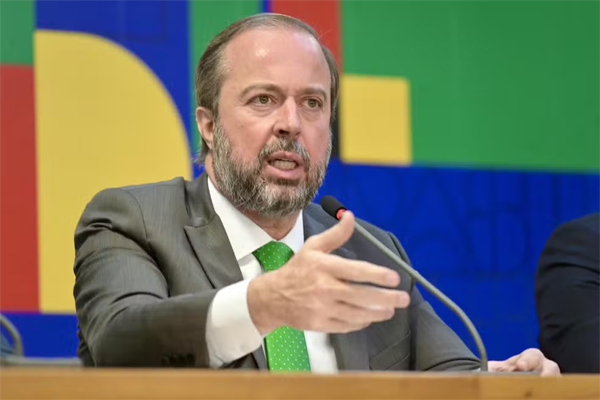The aim is to improve supply security and allow energy exchange and surplus sales to Bolivians

Rafael Bitencourt, Valos
BRASILIA
EnergiesNet.com 07 09 2024
Alexandre Silveira, Brazil’s minister of Mines and Energy, leads the Brazilian government delegation that traveled on Monday (8) to Santa Cruz de la Sierra, Bolivia, to finalize details of at least three diplomatic negotiations in the area of energy integration between the two countries. The talks involve the signing of a memorandum of understanding this Tuesday (9).
Government representatives are expected to formalize initiatives that will enhance the supply security of both countries, provide opportunities for Brazilian companies to sell surplus energy to Bolivia, and allow Bolivia to replace more expensive energy sources within its system.
The first project is related to raising the water level of the Jirau hydroelectric reservoir on the Madeira River (Rondônia), as reported by Valor last month. At that time, there was a potential increase in Jirau’s average annual production by 330 average megawatts (MWmed).
The plan is for the plant to operate at a 90-meter level for certain periods of the year, one source familiar with the matter said. This level cannot be maintained throughout the year to avoid flooding areas in Bolivia. The adjustment in water management will result in increased energy production by the Brazilian plant.
This energy gain will be shared with Bolivia, with two-thirds allocated to the Brazilian market and one-third to the Bolivian system. For practical implementation, the measure will need prior analysis by the National Water Agency (ANA) and approval from the Brazilian Institute of Environment (IBAMA).
Price and volume issues will still need to be resolved, but initially, this will be done experimentally to gradually measure the effects on Bolivian territory, with the possibility of reversing the decision if necessary.
The second agreement involves supporting isolated energy systems in Bolivia. Similar to Brazil, regions not connected to the main transmission grids face higher supply costs. In this case, support will be provided by Energisa in the state of Acre, near the Bolivian border.
In the proposed integration of systems through the state of Acre, the local distributor would benefit from increased energy sales while Bolivia could suspend the operation of diesel-powered plants, which have high pollution levels and generation costs. The countries hope to facilitate the transfer of 50 MW through this negotiation.
Lastly, the third negotiation front, still in its preliminary stages, aims to intensify the potential energy exchange across the border, amounting to 400 to 500 MW. This decision will take longer to have practical effects, as it requires more in-depth studies—in Brazil’s case, to be conducted by the Energy Research Office (EPE)—before moving to the phase of contracting infrastructure to make the plan viable.
valorinternational.globo.com 07 09 2024












